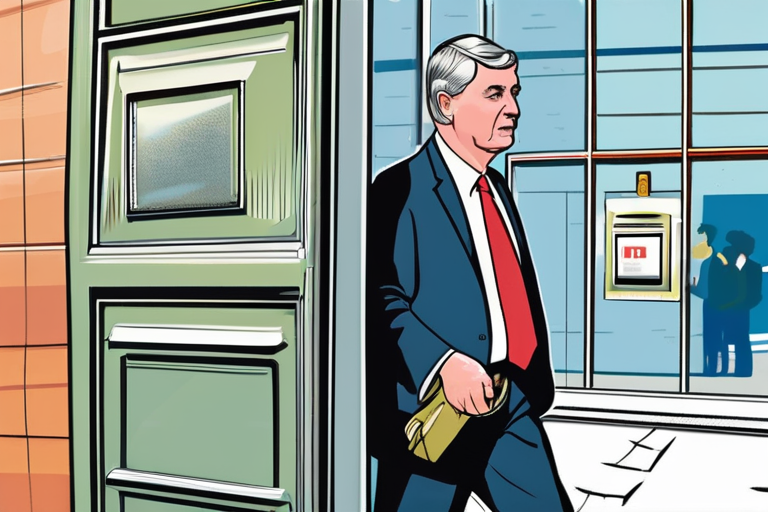UK Chancellor Jeremy Hunt's Predecessor Faces Fiscal Conundrum
UK Chancellor Jeremy Hunt is set to present his budget, a move that comes as the country grapples with a widening fiscal hole. Hunt's predecessor, Grant Shapps' successor, Jeremy Hunt's predecessor, Rishi Sunak, had faced a similar challenge in 2022. The UK's public finances have been under pressure, with the government facing a significant budget deficit.
According to the Office for Budget Responsibility (OBR), the UK's fiscal hole is estimated to be around £60 billion. This is a significant increase from the £30 billion deficit forecasted in 2022. The OBR also predicts that the UK's debt-to-GDP ratio will rise to 97.5% by 2026, up from 95.5% in 2022.
The UK's economic growth has been sluggish, with the country experiencing a mere 0.2% growth in the third quarter of 2025. This is a significant slowdown from the 0.8% growth recorded in the previous quarter. The UK's economy has been under pressure due to a combination of factors, including a decline in consumer spending and a slowdown in business investment.
The UK's fiscal hole is a major concern for investors and policymakers alike. The country's high debt levels and sluggish economic growth have raised concerns about its ability to service its debt. The UK's credit rating has been downgraded by major rating agencies, including Moody's and Standard & Poor's.
Rishi Sunak, the UK's former Chancellor, had faced a similar challenge in 2022. At the time, he had implemented a series of austerity measures, including a rise in National Insurance contributions and a freeze on public sector pay. However, these measures were met with resistance from some quarters, and Sunak ultimately resigned as Chancellor in 2022.
Jeremy Hunt, who succeeded Sunak as Chancellor, has indicated that he will not raise taxes to plug the fiscal hole. Instead, he has pledged to implement a series of spending cuts and efficiency measures. However, it remains to be seen whether these measures will be enough to address the UK's fiscal challenges.
The UK's fiscal hole is a major concern for the country's economy and its citizens. If left unchecked, it could have serious implications for the country's credit rating and its ability to service its debt. The UK's policymakers will need to take a range of measures to address the fiscal hole, including spending cuts, tax increases, and efficiency measures.
In conclusion, the UK's fiscal hole is a significant challenge that requires a comprehensive and sustained response. Jeremy Hunt's decision not to raise taxes is a bold move, but it remains to be seen whether it will be enough to address the country's fiscal challenges. The UK's policymakers will need to work together to find a solution that balances the need to reduce the fiscal hole with the need to protect the country's economic growth and its citizens' living standards.


























Share & Engage Share
Share this article